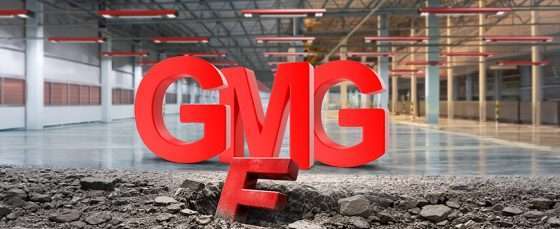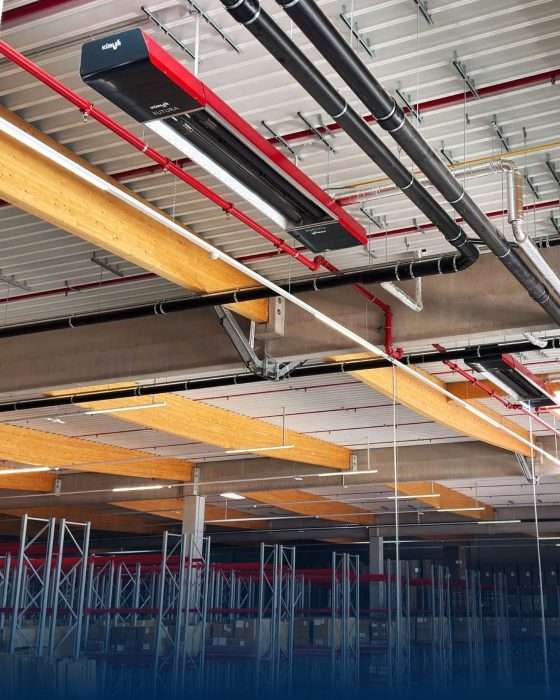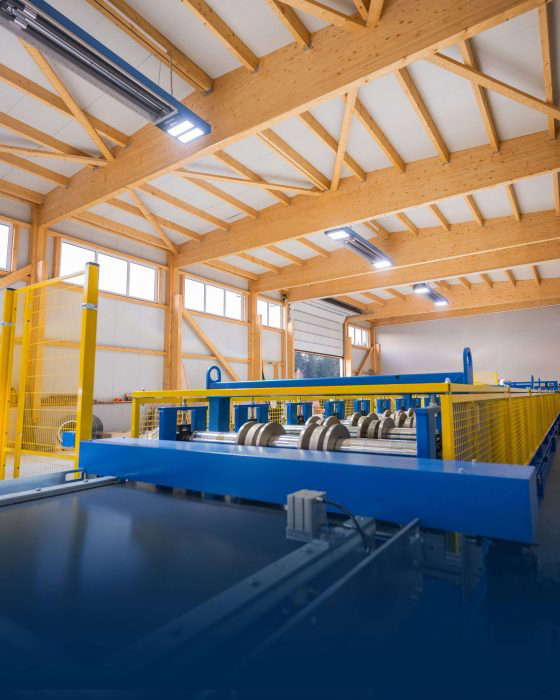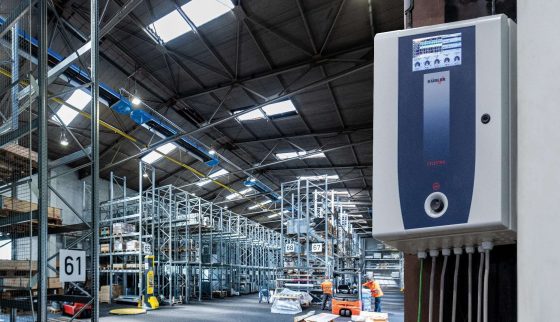Heating halls in compliance with GEG from 2024 - but how?
May 3, 2023
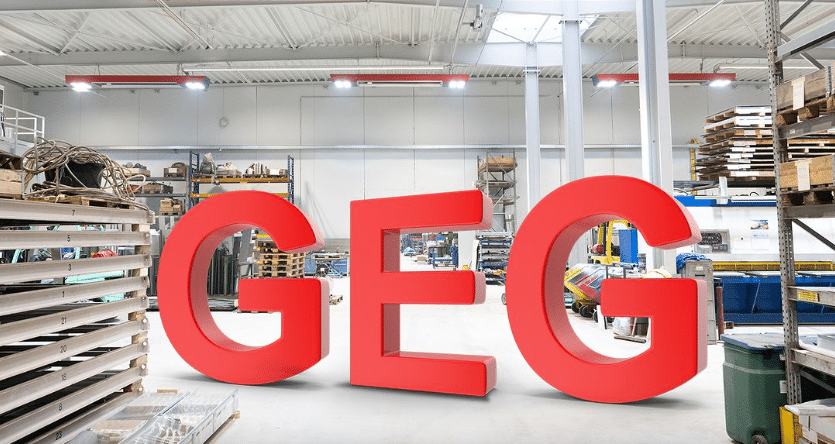
How will Germany heat from 2024 according to Federal Minister Habeck? First things first: the final answer is not yet available. This is because the draft for a new Building Energy Act (GEG) has only just made it through the cabinet. The next step will be to ask the Bundestag and Bundesrat. Nevertheless, the announced "end" for gas and oil heating systems has been making waves for months. And caused so much uncertainty that last winter, instead of investing in the energy-efficient refurbishment of their hall heating systems, industry often preferred to reactivate old oil and coal heating systems...
This was certainly not effective. The shock-induced paralysis not only set back climate targets, but also harmed businesses: millions of euros in energy cost savings could not be booked on the credit side. The GEG of 2021 is still valid, and the planned revision explicitly takes into account the special heating conditions of halls that rely on specific technologies such as decentralized infrared heating. Our experts have cleared the jungle of the draft bill for you and marked the sections that are relevant for GEG-compliant Heating halls will also be important from January 1, 2024.
In the new GEG ("65 % renewables for every new heating system from 2024"), the special features of "non-storey buildings" such as industrial and commercial buildings with their typically high ceilings are given due consideration
Highly efficient decentralized hall heating systems such as the KÜBLER FUTURA multi-energy heating system are the ideal solution for heating halls with typical ceiling heights ranging from 4 m to well over 20 m in some cases. With the ability to react quickly and precisely to local and temporal heat requirements - i.e. to provide heat only when it is needed in a specific area - the FUTURA heating system is the first to combine maximum efficiency in heating halls with the use of renewable energies in the form of green electricity and green gases, depending on availability.
Compliance with the new legal requirements (GEG from 2024) is ensured with FUTURA both in the renovation sector and in new builds. This is demonstrated by excerpts from the draft bill
- IR heaters operated directly by electricity with complete coverage of the heat demand automatically fulfill the requirements of the GEG in the hall area without additionally falling below the minimum requirements for structural thermal insulation (§71d (4)).
- The installation of a gas heating system that is capable of, Both natural gas and 100% hydrogen („H₂-ready“) also meet the requirements. Natural gas can initially be used for this, subject to compliance with a binding transformation path to be submitted by the gas distribution network operator in accordance with Section 71k. The conversion to hydrogen operation may only require limited structural changes to the heating system (currently proposed here are "a maximum of 20-25 % of the original investment costs").
- Any combination of the two previous points - such as the FUTURA multi-energy infrared heating system - is also a fulfillment option within the meaning of the new GEG (§71).
For the renovation of hall buildings, the great energy-saving potential of efficient decentralized heating is also further taken into account by the new GEG
- The installation of a highly efficient decentralized hall heating system is also possible here (in addition to the options mentioned above) without feeding in renewable energy: If 2 years after the installation of the decentralized heating system in halls (> 4 m) a saving of at least 40 % over the period of one year is proven, the basic requirement for the use of renewable energies according to §71 does not apply. The background to this is that the requirement for renewable energies is assessed here on a par with the saving of useful energy and is equivalent. Multi-energy systems such as FUTURA therefore meet the planned GEG requirements in several respects. And this is achieved through greater comfort and effective heat transfer via infrared with precise temporal and spatial allocation (e.g. zone heating). Another advantage for operators of industrial and commercial buildings is that the investment costs saved can be used to invest in a PV system. This increases the energy self-sufficiency of companies and at the same time leads to a reduction in energy costs. This is also an advantage in terms of decarbonization: the innovative Infaro heaters accompany their users into the future with investment security - beyond the year 2045. And all this with optimum comfort, perfect usability and unique multi-energy capability.
Everything you need to know about energy-saving hall heating systems in practice
Saving energy is a big issue - across all sectors. If you want to put an end to inefficient heating systems, our guide is just right for you!
Request a free guide
You might also be interested in
-
The German government is sticking to its goal of climate neutrality by 2045. The GMG is to come into force on 01.07.2026. The EU Buildings Directive (EPBD) will be implemented 1:1, making full use of national leeway. The requirements of the Heating Act (GEG §§ 71-71p) will be deleted. The obligation to operate new heating systems with at least 65 % renewable energy will no longer apply to new and existing buildings. Technology openness: Owners [...]
-
Germany has a huge number of buildings whose heating systems waste energy every day and produce far too much CO₂. With regard to the use of renewable energies and modern technologies, it is by no means just an old stock that urgently needs to be refurbished. Many newly built halls are also equipped with outdated [...]
-
Mr. Kübler, your company produces heating systems for halls. These only make up a small proportion of all buildings in Germany. Why is it nevertheless important to save as much energy as possible in this area? That's right, halls only make up around 1.5 percent of all buildings in Germany, so most people don't notice them. Even [...]
-
Christmas is once again approaching surprisingly quickly - and, unfortunately, one or two challenges are on the horizon. From 3G and 2G plus to the next increases in energy prices. Congratulations if you have already converted your hall heating to an economical system from KÜBLER. This is a really good decision in many respects.
